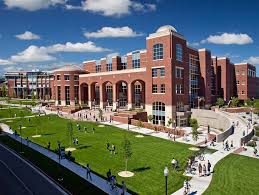
- Details
- By Native News Online Staff
The following letter from University of Nevada - Reno President Brian Sandoval was published to commemorate Native American Heritage Month:
November 12, 2024
Dear Wolf Pack Family,
The University of Nevada is situated on the traditional homelands of the Numu (Northern Paiute), Wasiw (Washoe), Newe (Western Shoshone), and Nuwu (Southern Paiute) peoples. We express our deep gratitude for the opportunity to learn, grow and live on their territory.
In November we come together to observe Native American Heritage Month, a time for The Wolf Pack Family to honor and recognize the remarkable contributions and histories of Native American and Indigenous communities.
We are especially proud of our Native American students, faculty, staff and alumni whose achievements inspire us all. We are proud of their tremendous accomplishments and it is essential that we include all Native voices and perspectives into our conversations and plans of our University’s promising road ahead.
The Indigenous Student Services Office and the Office of Indigenous Relations have several resources available to campus, including information on how to support the Indigenous Student Organization and Native American Heritage Month programming and events. Our Native American Alumni chapter also helps support community efforts and were instrumental in this year’s University Powow.
Throughout the month, there are several special activities on our campus that complement the significance of Native American Heritage Month. I encourage everyone to join in when possible.
Rock Your Mocs Week. Nov. 10 to Nov 16. Rock Your Mocs is a worldwide Native American and Indigenous Peoples social media unity event held annually that aims to honor the ancestors, raise awareness and show pride in Native culture, identity and history. You can join by wearing your moccasins, ribbon skirt, ribbon shirt or culturally significant garments the week of Nov. 10 to Nov. 16 on campus. Don’t forget to take a photo or video and use the hashtag #RockYourMocs.
Handgame Workshop Series. Nov. 12 from noon to 2 p.m., JCSU Graduate Student Lounge and Nov. 19 from noon to 2 p.m., MIKC Rotunda. Hosted by the Indigenous Student Organization, this three-part series introduces participants to Handgames, a traditional Native game that encourages teamwork and cultural exchange. The Office of Indigenous Relations and the Multicultural Center will assist with providing community teachers, elders and support.
API Social with Chicken Katsu and Spam Musubi Workshop. Nov. 12 from 6 to 8 p.m., Multicultural Center. This workshop will offer hands-on learning about traditional API (Asian and Pacific Islander) dishes, bringing together Native and API communities in a shared culinary experience.
Mesa Rim Climbing Night. Nov. 13 at 6 p.m., Mesa Rim, 970 Harvard Way, Reno. A family-friendly community climbing event organized by Nevada Urban Indians. All are welcome to attend for a night of fun and physical activity.
Native American Craft Room. Ongoing throughout November in the Niche at the Multicultural Center. A Native American craft room where students can engage in cultural projects like beading and making ribbon skirts. This space serves as a creative outlet and a place for students to build meaningful relationships and strengthen their cultural identity.
Also, Wolf Pack Athletics will honor Native American Heritage Month at the following home games.
- Football versus Air Force, Nov. 23
- Women’s Basketball Nugget Classic, Nov. 29 through 31
In addition to these events, the University is cohosting a series of Talking Circles aimed at supporting the mental health and well-being of Native students. More information will be available soon.
If you have not yet had an opportunity to do so, I encourage you to visit the Great Basin Mural, located outside in the heart of our campus between the Ansari Business Building and the Pennington Student Achievement Center. A panel-by-panel video tour and explanation of the deep meanings of the Peoples and communities represented in the mural is available on the Great Basin Mural webpage. The stunning mural is a testament to the impact that Native American Peoples and communities have on our past, present and future here in the Great Basin region.
Let us all use this month as an opportunity to acknowledge, celebrate and learn more about the significant contributions that Native Americans and members of Indigenous communities have made throughout time.
Go Pack!
Sincere regards,
Brian Sandoval
President
More Stories Like This
10 Years of Building Business Dreams for Indigenous WomenIchigo Foundation Awards American Indian College Fund Adult Education Program
Bard College Center for Indigenous Studies (CfIS) Hosts Annual Symposium With Keynote Speaker Miranda Belarde-Lewis on March 9–10
American Indian College Fund Announces Spring 2026 Faculty Fellow Cohort
Navajo Nation Signs $19 Million Diné Higher Education Grant Fund Act into Law
Help us defend tribal sovereignty.
At Native News Online, our mission is rooted in telling the stories that strengthen sovereignty and uplift Indigenous voices — not just at year’s end, but every single day.
Because of your generosity last year, we were able to keep our reporters on the ground in tribal communities, at national gatherings and in the halls of Congress — covering the issues that matter most to Indian Country: sovereignty, culture, education, health and economic opportunity.
That support sustained us through a tough year in 2025. Now, as we look to the year ahead, we need your help right now to ensure warrior journalism remains strong — reporting that defends tribal sovereignty, amplifies Native truth, and holds power accountable.
 The stakes couldn't be higher. Your support keeps Native voices heard, Native stories told and Native sovereignty defended.
The stakes couldn't be higher. Your support keeps Native voices heard, Native stories told and Native sovereignty defended.
Stand with Warrior Journalism today.
Levi Rickert (Potawatomi), Editor & Publisher


